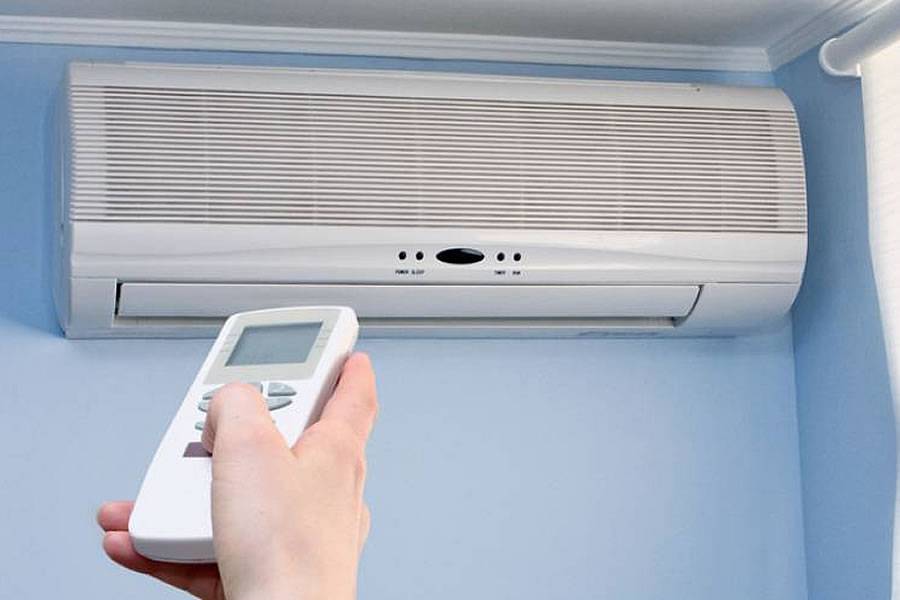How Air Conditioners can impact indoor air quality
- 06-06-2024
- Business
- Canarian Weekly
- Photo Credit: Pexels
Air Conditioning systems (AC) are vital in maintaining comfort within homes and offices, especially in warmer climates. Beyond temperature regulation, AC units significantly influence indoor air quality (IAQ). This article explores how ACs impact IAQ, detailing the benefits and potential pitfalls and providing practical advice for optimising air quality.
Benefits of AC Systems on Indoor Air Quality
Temperature and Humidity Control:
AC also known as Air Conditioner systems are designed to regulate temperature and humidity levels, which are crucial for maintaining a healthy indoor environment. High humidity can lead to growth of mould and mildew, which can trigger respiratory issues and allergies. By reducing humidity, ACs help prevent the proliferation of these harmful organisms. Additionally, maintaining a consistent temperature can reduce the risk of heat-related illnesses.
Air Filtration:
Modern AC systems have filters that remove dust, pollen, pet dander, and other airborne particles. High-efficiency particulate air (HEPA) filters are particularly effective in capturing microscopic contaminants, improving overall air quality. Proper maintenance and timely replacement of the filters are important to ensure optimal performance and air purity.
Ventilation Improvement:
AC units can enhance ventilation by circulating fresh air into indoor spaces. This process helps dilute indoor pollutants and replenishes oxygen levels, creating a healthier environment. Adequately ventilated spaces are less likely to accumulate harmful substances like carbon dioxide, volatile organic compounds (VOCs), and other pollutants.
Potential Negative Impacts of AC Systems on Indoor Air Quality
Poor Maintenance and Dirty Filters:
Neglecting consistent maintenance can lead to a buildup of dirt and debris in AC filters, reducing their effectiveness. Clogged filters can become breeding grounds for bacteria and mould, which can then be distributed throughout the indoor space. Regular cleaning and replacement of filters are important to prevent these issues and maintain good air quality.
Inadequate Ventilation:
While AC systems can improve ventilation, they also contribute to bad air quality if not properly managed. Recirculating indoor air without adequate fresh air intake can concentrate indoor pollutants. Ensuring AC systems have proper ventilation mechanisms is essential to avoid this problem.
Chemical Contaminants:
Some AC systems use chemicals, such as refrigerants, which can potentially leak and contaminate the indoor environment. These chemicals can be harmful if inhaled, posing health risks to occupants. Regular maintenance and inspections are important as it detects and addresses any leaks promptly.
Best Practices for Optimising Indoor Air Quality with AC Systems
Regular Maintenance:
Ensuring regular maintenance of AC systems is paramount for optimal performance and air quality. This includes cleaning or replacing filters, checking for leaks, and servicing the unit to prevent mechanical issues. Engaging professional HVAC services for routine inspections can help to identify and to rectify potential problems before they impact IAQ.
Using High-Quality Filters:
Investing in high-quality filters, such as HEPA filters, can significantly enhance the ability of an AC system to remove airborne contaminants. These filters are designed to capture a higher percentage of particles, including those too small for standard filters to trap. Regularly replacing these filters according to the manufacturer's recommendations is crucial.
Ensuring Proper Ventilation:
Balancing indoor air recirculation with fresh outdoor air intake is essential for maintaining good IAQ. AC systems should be equipped with proper ventilation mechanisms to ensure a continuous supply of fresh air. Consider using air purifiers to improve indoor conditions in areas with poor outdoor air quality.
Controlling Humidity Levels:
Monitoring and controlling indoor humidity levels can prevent the growth of mould and mildew. AC systems with built-in dehumidifiers are particularly effective in managing humidity. Maintaining humidity levels between 30-50% is generally recommended for optimal comfort and health.
Choosing Eco-Friendly Refrigerants:
Opting for Air Conditioner systems that use eco-friendly refrigerants can minimise the risk of chemical contamination. These refrigerants are less environmentally harmful and pose fewer health risks if leaks occur. Consulting with HVAC professionals can help identify and select AC units that meet these criteria.
Creating a Cosy Atmosphere:
A cosy atmosphere enhances comfort and relaxation. Use soft textiles like blankets, rugs, and cushions to create a warm and inviting space. Incorporate ambient lighting, like table lamps and candles, to add a sense of cosiness. Choose furniture with soft, comfortable fabrics and arrange seating areas to encourage relaxation and socialising.
Incorporating Technology for Comfort
Modern technology offers various solutions for improving indoor comfort. Smart home systems allow easy control of lighting, temperature, and security features. Voice-activated assistants can manage multiple functions, enhancing convenience. High-quality sound systems and home entertainment setups provide entertainment and relaxation options.
Air conditioning systems profoundly impact indoor air quality, offering significant benefits and potential drawbacks. By understanding how ACs influence IAQ and implementing best practices for maintenance and operation, it is possible to optimise air quality and create a healthier indoor environment.
Regular maintenance, high-quality filters, proper ventilation, humidity control, and eco-friendly refrigerants are key factors in achieving this goal. Maintaining a focus on these areas ensures that AC systems contribute positively to indoor air quality, enhancing comfort and well-being for all occupants.




























































